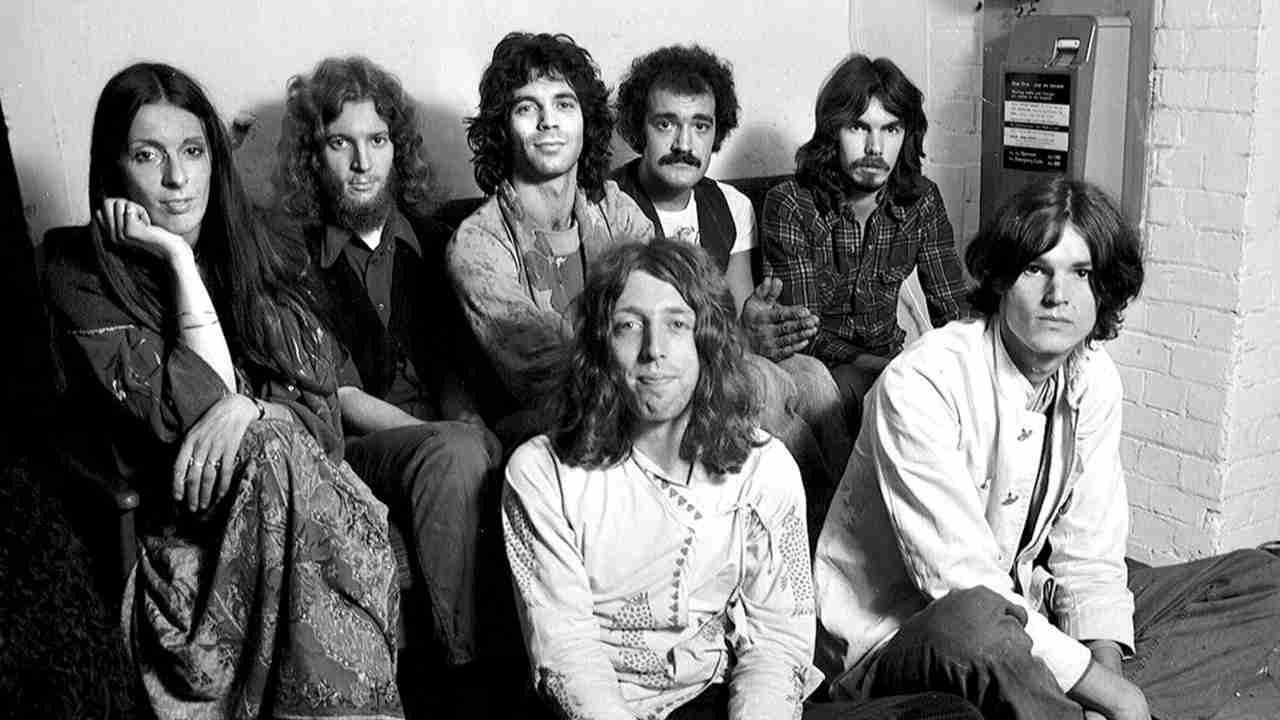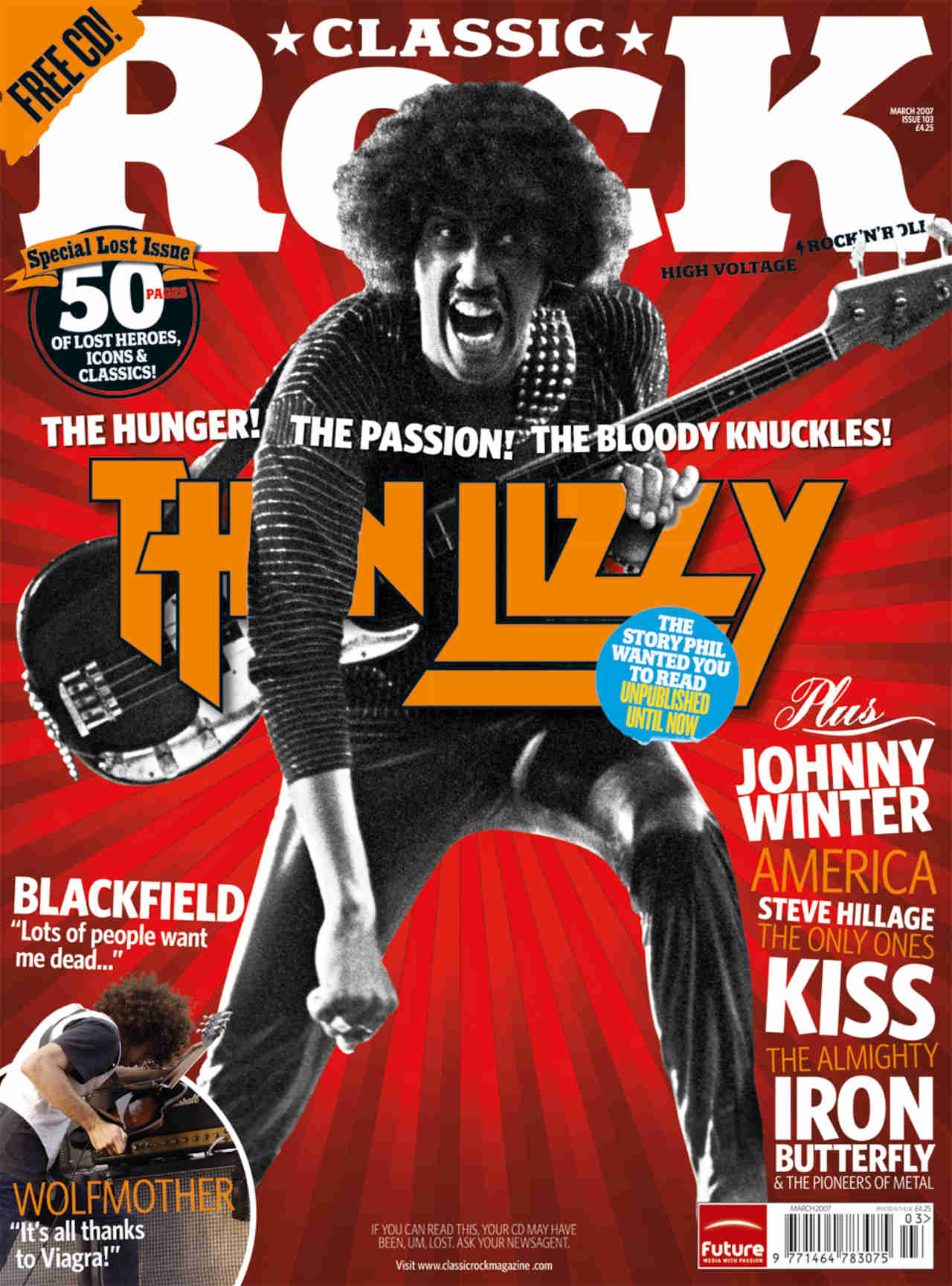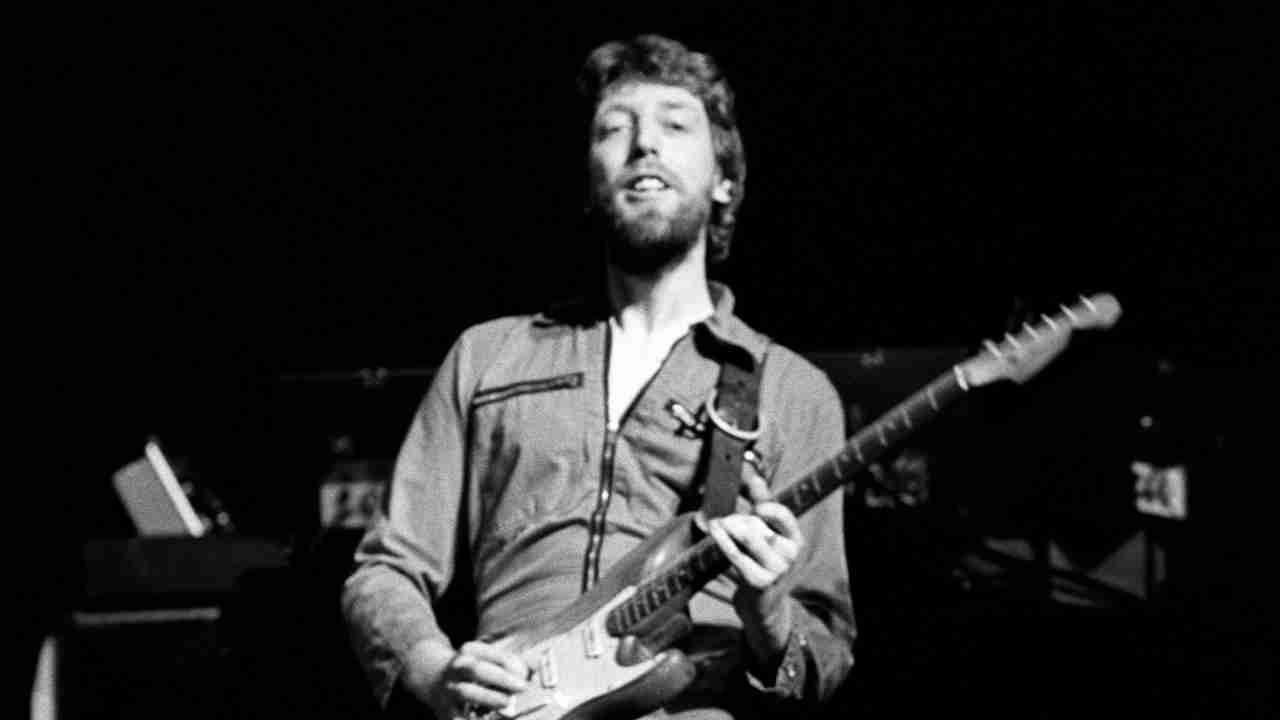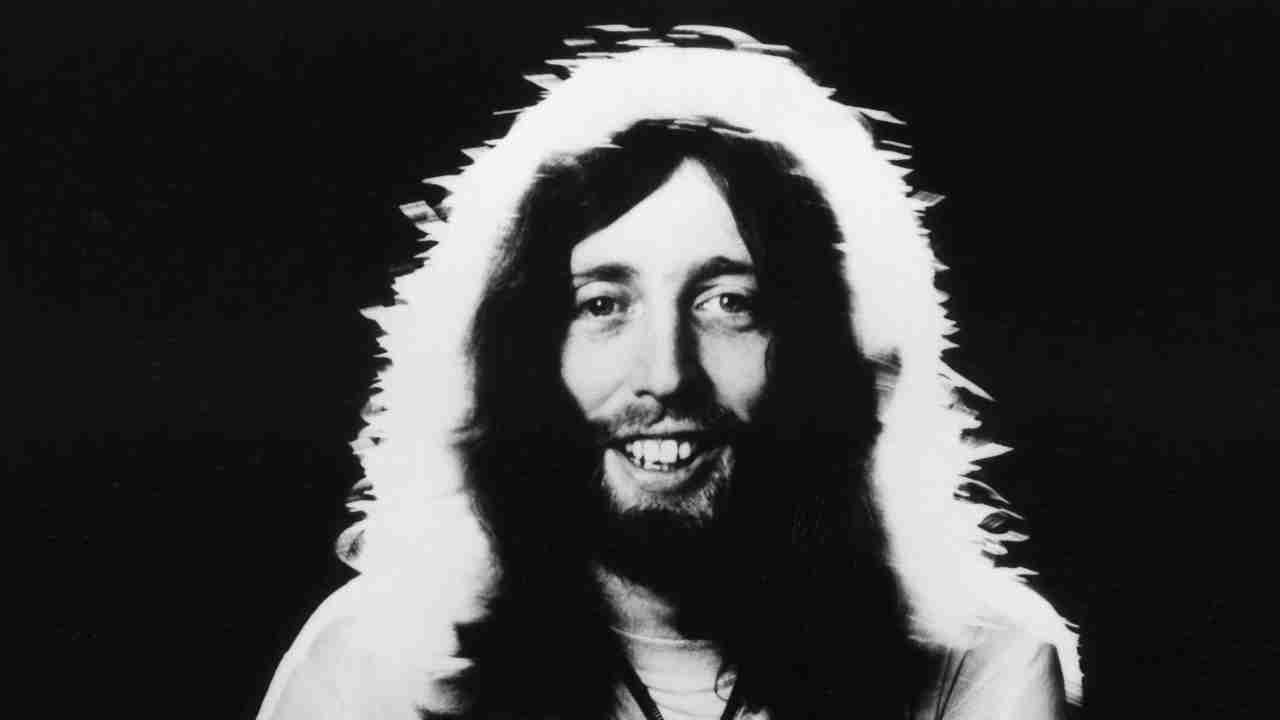As guitarist with Khan and Gong, Steve Hillage was a pivotal figure in the 70s prog scene – but by the late 80s, he had pivoted into ambient electronic music. In 2007, Classic Rock sat down with Hillage to look back over his maverick career.

Steve Hillage’s studio lair in London’s Ladbroke Grove resembles a slightly tidier version of the workshop inhabited by Doc Brown in the movie Back To The Future. But unlike the fictional madcap inventor of time machines, Hillage is a real-life eccentric. He was the brains behind some of the most compulsive and individual guitar-based rock of the 1970s and 80s, before electing to slip away from the scene and turn his hand to ambient dance music instead.
“Here’s something for you,” Hillage says with his familiar, slightly toothy grin, handing over a flyer from a recent performance in Amsterdam during a three-day festival called the Gong Family Unconvention. “This was a great event. Miquette [Giraudy, his keyboardist partner and long-term life partner] and I even did a short set of my solo material for the first time in nearly 30 years.”
The London-born Hillage picked up his first guitar at the age of nine. In 1969 he became part of the burgeoning and renowned Canterbury Scene when he joined the band Uriel, which evolved into Egg, by which time he was studying history and philosophy at Canterbury University.
Completing his first spell as a professional musician with his next group, Khan, Hillage toured and recorded with Kevin Ayers. Then, taking his life into his own hands, he joined Gong, ex-Soft Machine guitarist/vocalist Daevid Allen’s revolving-door hippie collective of acid-head space-rockers. During Hillage’s three-year stay with Gong, offering musical praise to pot-head pixies, electric cheese and flying teapots was an everyday occurrence. But he hated being called a hippie.
“I’ve always regarded myself as an individual rather than a member of a tribe,” he protests. “That being said, they were idealistic, life-shaping times.”

His growing reputation as a guitarist resulted in an invitation from Mike Oldfield to join a tour for Oldfield’s Tubular Bells album in the summer of ’73. Richard Branson’s fledgling Virgin Records – Oldfield’s label – soon offered Hillage a solo deal. Of the now world-famous entrepreneur, the guitarist says with a smile: “Richard had that talent of taking you to the cleaners, but you still liked the guy.”
Hillage was still in Gong when his debut solo album Fish Rising made the Top 40 in 1975, but that situation soon changed.

“Fish Rising turned out to be quite successful, and it became awkward when Daevid Allen and Gilli [Smyth, vocals] apparently left Gong for good,” he explains. “People started talking about Gong as my backing band, but it was more of a community.”
Leaving Gong and taking Miquette with him, Hillage was sufficiently well-regarded to get Todd Rundgren to produce his second album, 1976’s L, with Kasim Sulton, John Willcox and Roger Powell, all from Rundgren’s band Utopia, playing on the record. A smirking Todd once recalled he and Hillage rearranging the beds at Rundgren’s studio in Woodstock, New York State, to face a certain direction, and sitting around naked going “Omm” together. “They even made me wait until the moon was in a certain phase before certain songs were recorded,” he added.
“That was for Lunar Musick Suite,” Hillage confirms. “But I don’t remember any of the naked ‘Omm’ stuff.”
However Hillage’s results were being achieved, they were spectacular. L climbed into the UK Top 10, and he opened for Queen at a gig in London’s Hyde Park. Touring American stadiums with ELO, however, was less satisfying. This manifested itself on his next album, Motivation Radio, which is arguably Hillage’s finest.
“I was being pigeonholed as prog rock, but at the time was listening to Funkadelic and Parliament as well as Jimi Hendrix,” he recalls. “In the face of music apartheid, I refused to make a record that was expected of me.”
Swathed in glissando guitar – a soaring, beautiful technique pioneered by Daevid Allen – the album saw Hillage singing of extra-terrestrial visits, ‘higher energy’, ‘hidden healing rays’ and ‘light and love and laughter in the air’, even though punk was still the dominant musical force. When Neil, the hippie character from TV comedy show The Young Ones, famously name-checked Hillage in an episode, it riled the guitarist.
“I like a good laugh as much as anyone, but being stereotyped like that really pissed me off,” he bristles. “At least I got my own back: when the National Westminster Bank did an avert with Neil holding a copy of Motivation Radio without getting permission to use my image, we sued and got a nice settlement.”
Hillage’s next album, 1978’s Green, was recorded in quick succession, with Pink Floyd drummer Nick Mason producing. The Glorious Om Riff and Leylines To Glassdom were marvellous songs. But Hillage and Giraudy were approaching creative burn-out. Over the next 12 months he released the live Live Herald and Rainbow Dome Music – the latter comprised of just two side-long pieces of ambient music. Curiously, Jimmy Pursey of punk band Sham 69 received a name-check on the former.
“A magazine thought they’d be clever and put the two of us together in an interview,” Hillage beams. “What they didn’t expect was that we agreed on virtually everything. When you think about it, what they [Sham 69] were saying with If The Kids Are United wasn’t too far off my own message.”
With the photographer egging them on to stage a fight, the pairwrote a song instead. Later, to everyone’s astonishment, Hillage even joined Sham 69 on stage at the 1978 Reading festival. Indeed, when Hillage’s Open album was released in late 1979, songs like 1988 Aktivator overlapped into the punk rock zeitgeist.

Further studio recording followed, and in 1982 the synthesiser pop of Hillage’s For To Next was released simultaneously with a companion instrumental record called And Or Not. But by then Hillage had long-since retired from the road, his final rock show having been three years earlier. “When playing live wasn’t fun any more we just stopped doing it,” he shrugs.
Hillage went on to produce artists as diverse as The Charlatans, Simple Minds and It Bites (overseeing the latter’s Once Around The World in 1988). But, much to the chagrin of Virgin Records, who sought an album from him for the US market, as a rock performer Hillage simply dropped off the map.
Meeting Alex Paterson of electronic duo The Orb in 1989 and hearing Rainbow Dome Music being played in a club chill-out room led to Hillage and Giraudy forming the ambient dance project System 7.
“I never understood the rock person’s hatred of dance music. It takes me to a place that can’t be reached with regular musical instruments,” he says, when asked to explain the genre’s appeal. I do some quite disturbing things on the guitar with System 7.”
If Hillage was so inclined, could he still make another record
like Motivation Radio?
“I’ve always been able to do anything I want,” he replies. “The conservatism of what’s called progressive rock these days appals me, but Miquette and I enjoyed playing the older material at the Gong Family Unconvention. If it could be integrated into my other activities, maybe we’ll do something like that again. Who knows?”
Originally published in Classic Rock issue 103, February 2007


